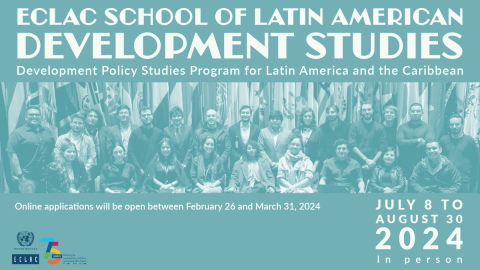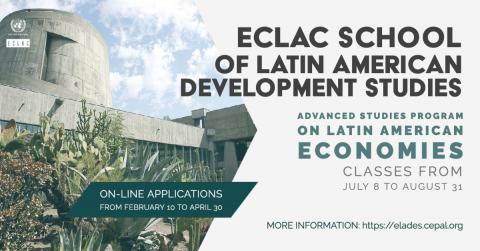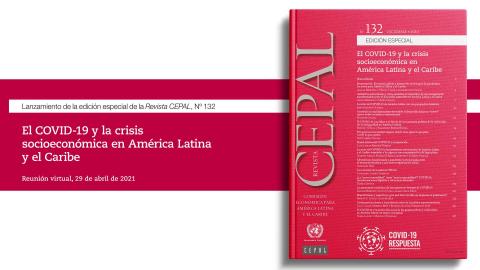Announcement
A new publication by the Economic Commission for Latin America and the Caribbean (ECLAC) analyzes in-depth the continued relevance of neo-structuralism’s postulates in light of the recent global and euro zone crises and proposes opening lines of dialogue between this school, of purely Latin American extraction, and other traditions such as heterodox currents of thought to promote a policy agenda that presents an alternative to the dominant economic paradigm.
The book Neo-structuralism and Heterodox Currents in Latin America and the Caribbean at the Beginning of the XXI Century (only available in Spanish) was edited by ECLAC’s Executive Secretary, Alicia Bárcena, and Deputy Executive Secretary, Antonio Prado, and contains 15 essays grouped in five thematic areas: currents of thought and the regional context at the start of the 21th century, macroeconomics for development, structural change and productive development, the role of the State, and case studies of the region’s major economies.
With this series of reflections by experts involved in the work of this United Nations organization, ECLAC seeks to offer a renewed take on neo-structuralism and its capacity for collaborating with heterodox currents such as the evolutionary and institutionalist views, the regulation school, the Marxists and radicals, and the post-Keynesians, while also establishing the bases for inclusive and environmentally sustainable socioeconomic development in the region.
The neo-structuralist line of thinking is built on the pillars of structuralism, which starting in the 1950s posed that Latin America and the Caribbean’s main problems were the technological lag, external restrictions, inequality, structural heterogeneity, instability and the political economy of relationships of dependence and power articulated under the center-periphery equation.
As the book recalls, the neo-structuralist current began its development at ECLAC at the end of the 1980s and beginning of the 1990s. By then, the programs of structural adjustment implemented in Latin American countries had provoked notable stagnation and a severe debt crisis, while Asian economies flourished and improved their international insertion thanks to the lower cost of exports of products with more technological content. This called into question the recommendations made under the Washington Consensus paradigm.
According to this collection of essays, neo-structuralism considers that the region’s main economic problems are not fundamentally the result of distortions in economic policy or the market, but instead have historical origins and structural characteristics. Therefore, the changes that it proposes are also structural in nature and are oriented towards improving international trade insertion, reducing structural heterogeneity, increasing the creation of productive jobs, and improving income distribution.
Starting in the 2000s, neo-structuralism was articulated in four areas: macroeconomics and finance, international trade, social development and environmental sustainability.
At the center of this paradigm is the action of the State, based on a new equation with the market and society, and a new vision of development in which equality is the ethical guiding principle and ultimate goal, structural change is the path and politics are the instrument. This has been set forth by ECLAC in its last three position documents: Time for Equality: Closing Gaps, Opening Trails (2010), Structural Change for Equality: An Integrated Approach to Development (2012) and Compacts for Equality: Towards a Sustainable Future (2014).
This book is based on the debates that took place during the seminar Neo-structuralism and Heterodox Economics held at ECLAC’s headquarters in April 2013 and is the result of a joint effort between this organization and the International Development Research Center (IDRC) of Canada, which during 2012 and 2013 promoted a project to preserve the legacy of Argentine economist Raúl Prebisch, ECLAC’s Executive Secretary between 1950 and 1963 and a historical figure in Latin American thinking.



